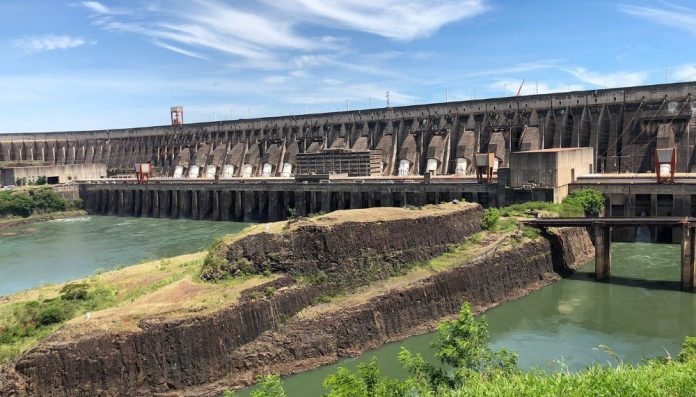
European consultancy federation EFCA is calling for better project preparation, integrated financing and revised procurement rules on global projects.
For over a century, European engineering companies have left their mark on iconic global projects, from the Suez Canal to the Itaipu Dam. Today, they remain involved in numerous international projects, but evolving policies on sustainability, human rights and fair competition have made working outside the EU more complicated.
Against this backdrop, the EU’s Global Gateway aims to mobilise €300bn for sustainable projects worldwide by 2027, with a particular focus on Africa. However, unfair competition from non-EU firms and lax enforcement of procurement rules in third countries is threatening these ambitions and according to European consultancy association EFCA, the continent’s engineers are having to navigate stricter EU policies and global competition in delivering sustainable projects.
EFCA, alongside industry partners, is working with EU institutions to propose solutions, including better project preparation, integrated financing, and revised procurement rules. Inés Ferguson, EFCA president, said: “An integrated European value proposition can be more competitive, but we need to adapt our approach.”
The evolution of relevant European Union policy over recent decades has changed much of the context and approach for engineering companies when working outside the EU. There is a broader and stricter set of rules and goals to adhere to, from those related to climate change and sustainability to those concerning the political principles upheld by the EU, human rights or free and fair competition being the best examples.
Moreover, the EU is a major donor to developing countries with support provided either directly to the governments (grants) or via the European Investment Bank (EIB) and national development agencies, like France’s AfD or Germany’s KfW.
Challenges for European firms
These aspects have increased both the complexity and quality of the engineers’ projects but have also led to market loss. Apart from the ‘no go’ projects determined by the EU rules, this is mostly due to the tendency of many stakeholders from recipient countries, particularly in the public sector, to benefit from EU funding without fully respecting the aid and/or market rules.
Engineering companies from other countries also often benefit from direct or indirect subsidies and other advantages which create unfair competition, not to mention the lower quality of projects that they often offer. Finally, EU rules are considered too lax compared to those of other donors such as the US or Japan, which tie part of their development funds to the involvement of national companies, particularly when it comes to technical assistance.
The EU’s Global Gateway is a new European strategy to support investments in the digital, energy, transport, health, education and research sectors across the world, fully aligned with the UN’s Agenda 2030 and its sustainable development goals, as well as the Paris Agreement. Its aim is to mobilise up to €300bn of investments for sustainable and high-quality projects between 2021-2027, with around half of it dedicated to the Africa-Europe Investment Package.
However, these ambitious targets are easily jeopardised if projects are not performed at the appropriate quality and in an acceptable timeframe, something that is bound to happen if the relevant policy and procurement rules are not properly implemented and applied. On top of that is the growing concern over how the EU funds will be used and by whom, given the past experiences.
A united sector response
Today there is a significant desire from both the EU institutions and the stakeholders from the built environment (contractors, engineers) and the transport (particularly railways) sectors to change this situation, from both a political and legal point of view.
Work has been ongoing throughout 2024 between the delegations of EFCA, EIC and UNIFE (the European Rail Industry Association) and their members with European Commission and EIB officials, to come up with a set of solutions that mitigate the risks of EU companies interested in participating in EU-funded projects abroad, while also ensuring that the best value for money can be delivered to the clients.
EFCA’s main recommendations concern the setting-up of project preparation and financing facilities to identify, prepare and assist EU delegations in promoting the relevant projects in the countries where they are based. “We believe that an integrated European value proposition can be more attractive and competitive, but we need to be better organised, adapt our procurement rules and define attractive financial packages,” says EFCA president, Inés Ferguson. This view is supported by other private sector representatives.
There is already a broad consensus regarding the importance of identifying and preparing sound and policy-aligned transport projects, a step where the engineers’ role is critical. The need for a new integrated approach was also shared by all parties, in which the European companies are involved from the very early phases, and where EU technology, standards and financing instruments make a difference in partner countries, with lower total costs and higher sustainability impacts.
EFCA that it is also necessary to have a ‘bottom-up’ approach, starting from the clients’ needs and focusing on demonstrating the value brought by the European integrated approach to project implementation and delivery. Finally, a change in the relevant EU legislative acts (competition, procurement, aid) to ensure this approach and tackle unfair competition should also be considered.
Meetings with the EU, EIB and other private sector partners are set to continue in 2025, to ensure the best solutions for clients in the development countries and for the EU companies alike.

















